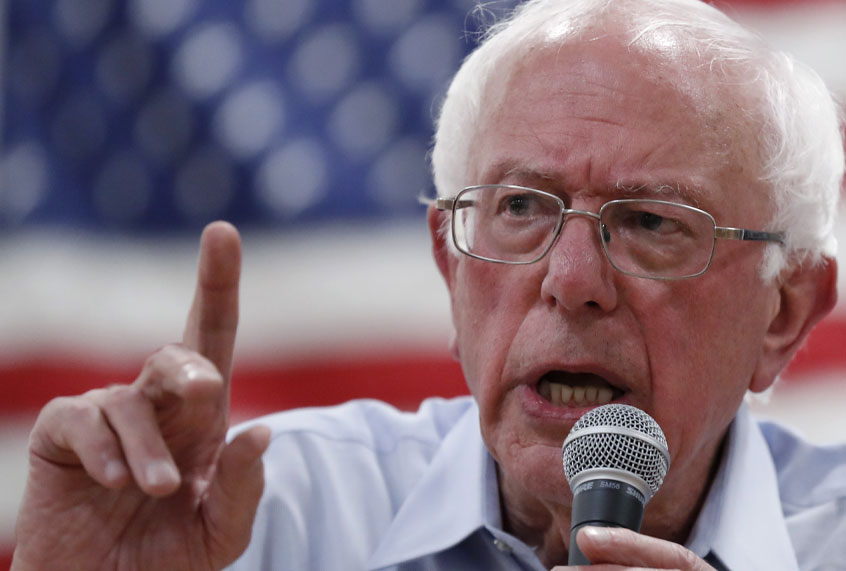Sen. Bernie Sanders, I-Vt., has unveiled a new criminal justice reform plan, which his presidential campaign claims would rectify some of the economic and social injustices currently embedded in America’s law enforcement system.
After decrying how America incarcerates “more of our own people than any country on Earth” — including 2 million in jail and another 5 million under the supervision of the correctional system — Sanders’ campaign website argues that the current prison system is “criminalizing poverty” and that “mass incarceration disportionately [sic] falls on the shoulders of black and brown people in America.”
To combat these problems, Sanders calls for a number of reforms, including: eliminating for-profit prisons; banning practices in which prisoners are charged for basic things like communications or are price gouged; stopping the use of secured bonds for federal criminal proceedings; and withholding funding from states which insist on using cash bail systems.
Sanders also condemned the problem of police officers targeting racial minorities, with his website explaining that “we must hold our police and sheriff’s departments to a higher standard. And we must end harmful policing practices like racial profiling, stop and frisk, oppressive ‘broken windows’ policing and the militarization of police forces — all of which actively undermine public safety and community trust in law enforcement.”
He added, “Widespread use of excessive force, including deadly shootings of unarmed civilians, undermine the integrity of and public trust in the police. Violence and brutality of any kind, particularly at the hands of the police meant to protect and serve our communities, must not be tolerated.”
Sanders’ campaign also promises to triple spending on defense for the poor to $14 billion each year; make sure public defenders are paid well and aren’t overworked; and incentivize lawyers into becoming public defenders by cancelling all of their existing and future student debt. Sanders also pledged to end the death penalty; abolish mandatory minimums in sentencing; legalize marijuana; treat addiction as a public health crisis rather than a crime; and provide more compassionate services to juvenile criminal offenders.
Although Sanders has long held left-wing views on criminal justice, he has in the past struggled to make inroads with African-American voters, who tend to be disproportionately targeted by the criminal justice system. During the 2016 presidential election, he was criticized by African-American voters in Vermont for “run[ning] away” from racial issues and neglecting the needs of the community in his state. African-American voters ultimately supported Hillary Clinton over Sanders in the primaries that year.
That being said, Sanders has been performing better among African-American voters in 2020. As Politico’s Holly Otterbein wrote last month, Sanders “has won over more African-Americans than [fellow Democratic frontrunner Sen. Elizabeth] Warren [of Massachusetts]. He earns a greater share of support from black voters than any candidate in the race except for Joe Biden, according to the latest Morning Consult surveys.”
She also added, “Sanders appeals to lower-income and less-educated people; Warren beats Sanders among those with post-graduate degrees. Sanders performs better with men, Warren with women. Younger people who vote less frequently are more often in Sanders’ camp; seniors who follow politics closely generally prefer Warren.”

